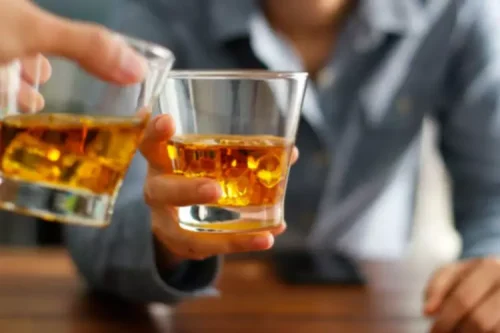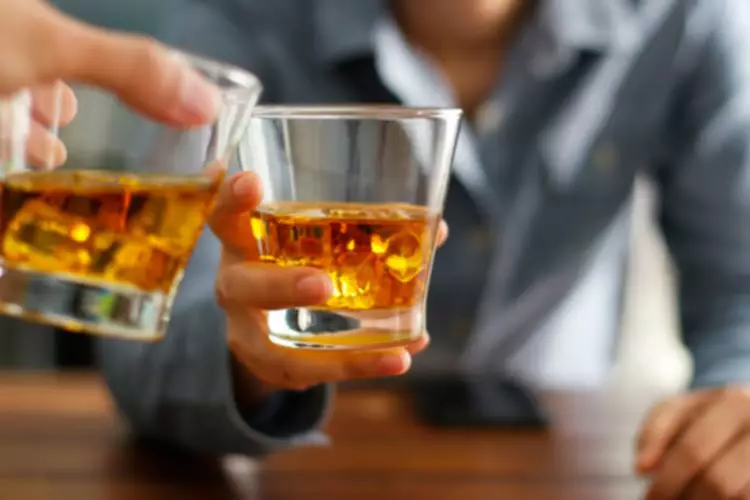
Stopping heavy alcohol use can lead to withdrawal, which often involves heightened anxiety and panic attacks. As the body adjusts to functioning without alcohol, the nervous system becomes overactive. Studies show a high prevalence of anxiety among alcohol-dependent individuals. This relationship creates a cycle where anxiety fuels drinking, and drinking exacerbates anxiety, potentially leading to both alcohol use disorder and worsening anxiety symptoms.
- Moreover, alcohol-induced changes in sleep patterns, mood regulation, and overall brain function can further worsen anxiety symptoms over time.
- We can practice things like meditation and deep breathing, spending time in nature, and getting exercise.
- Although alcohol-related panic attacks can cause major distress, there are steps you can take to prevent them.
- Experiencing anxiety the day after drinking, commonly known as a “hangover anxiety” or “hangxiety,” is a common occurrence for many individuals.
- For some people, the physical sensations of cold weather—tightened muscles, shallow breathing, or even feeling constricted by heavy clothing—mimic symptoms of anxiety and can trigger a panic attack.
Neuroinflammation and Mental Health

If all goes well, you should see a significant improvement in both frequency and intensity. If not much has changed, look for consistencies in panic attack triggers so you can avoid them in the future. If you experience sudden, intense anxiety and fear, it might be the symptoms of a panic attack.13 Other symptoms may include a racing heartbeat, or feeling faint, dizzy, lightheaded, or sick. Alcohol can also make anxiety worse because it affects the levels of other mood-influencing chemicals like serotonin. Research notes that changes in chemical levels such as serotonin can cause anxiety disorders and depression. About 3.1% of the U.S. population is affected by generalized anxiety disorder, according to the Anxiety & Depression Association of America.
Schedule a FREE alcohol addiction assessment with one of our supportive rehab admission experts.

For those who have an alcohol use disorder, it’s a symptom of alcohol withdrawal syndrome. https://ecosoberhouse.com/ At Talkiatry, our psychiatrists can treat patients with mental health conditions such as anxiety or depression and substance use disorders that occur at the same time. Treating these conditions is a critical part of treating substance use disorder.
Alcohol makes you more susceptible to panic attacks.
In order to find out which medications might be appropriate, they need to conduct a full evaluation. At Talkiatry, first visits are generally scheduled for 60 minutes or more to give your psychiatrist time to learn about you, work on a treatment plan, and discuss any medications that might be included. It does so by binding to GABA receptors in the brain—which helps your body to relax and your mind to feel calm. Alcohol is believed to mimic this effect by also binding to GABA receptors. That’s why drinking can help you feel relaxed in the short-term, especially in social situations.
- It can be a good distraction, and the company will provide added comfort.
- Nausea or stomach discomfort can arise, sometimes leading to digestive issues.
- It takes your body and liver about eight hours to remove what’s essentially a poison.
- These may make a person feel uneasy, dizzy, and irritable, and may lead to a panic attack.
- At this type of clinic you will undergo detox (if needed) and engage with a therapist who will listen to you and help you develop the skills you need to stay sober.
- It’s also why your body becomes so flooded with stress and anxiety that you may begin to experience panic attacks.
Research has shown a significant link between alcohol use disorders and panic disorders. Many individuals seeking treatment for panic attacks have a history of alcohol dependence, highlighting the interconnected nature of these mental health issues. Understanding this relationship is crucial for those looking to manage their anxiety and improve their overall well-being. While it’s common to experience a hangover or feel a bit sluggish after drinking alcohol, for some people, alcohol consumption can exacerbate depressive symptoms. Alcohol affects the brain’s chemistry, and its depressant effects can intensify feelings of sadness and hopelessness, particularly in those already dealing with depression.
- Track how much you’re drinking to help spot patterns so you can avoid triggers – the MyDrinkaware app can help.
- Have you ever experienced shortness of breath, a racing heart, trembling, and an overall sense of impending doom after drinking?
- Our team does their best for our readers to help them stay informed about vital healthcare decisions.
- Monitoring your alcohol intake and being aware of these signs can help you manage your blood pressure more effectively.
- Alcohol can affect neurotransmitters in the brain and lower inhibitions, potentially triggering or exacerbating panic symptoms.

This page explains more about anxiety, why alcohol can trigger it or make it worse, and steps you can take drug addiction treatment to feel better. Our compassionate clinicians meet you where you are on your recovery journey and create personalized treatment plans to help you heal. We incorporate evidence-based therapies into individual counseling, family therapy, and group sessions.

Alcohol might temporarily numb anxious thoughts and feelings, providing a sense of escape. Advanced Behavioral Health LLP is a practice located on East 44th St in midtown Manhattan, half a block from Grand Central can alcohol cause a panic attack Station. Our psychologist offers individually personalized cognitive behavior therapy for clients in a private upscale setting.
